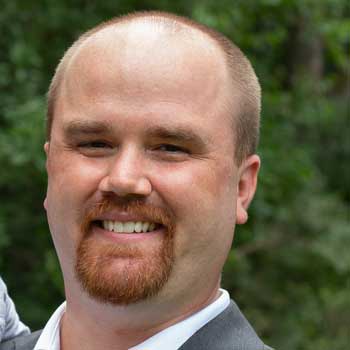
Christmas and evangelization. How are they related? Like the shepherds, we encounter Christ in a very personal way at each and every Mass—especially in the Eucharist. Yet it is not enough to simply and passively receive this great gift with joy. Joy naturally is received and shared. The full meaning of Christmas and its encounter with the Christ-child moves us to become evangelists, that such an immense joy might be shared with all.
By Brandon Harvey
24 December 2018
The Solemnity of the Lord’s Nativity, commonly known as Christmas, is the celebration and liturgical remembrance of the birth of the Messiah, the Savior, the Lord, the Incarnate Word. Within the Christmas Narrative one finds a very personal mission given to this newborn babe.
Just as Zechariah encountered an angel before the presence of the Lord in the Temple, the glory of the Lord, His majestic presence, overshadows the shepherds that were keeping watch over their flock. An angel appears to them as well. The announcement of the long-awaited Christ is not reserved to an elitist group, but the gambit of individuals in Luke 1-2 and Matthew 1-2 that receive this announcement paints a portrait of a universal moment, a God who comes to all people.
The angel that appears to the shepherds is an Evangelist, one who proclaims the “good news” of the coming of Jesus Christ. They proclaim the “good news,” the Gospel, in a very personable way. All of this, the preparations by the covenants and the grand but humble coming of the Son of God, is for the shepherds, just as it is for everyone. The Evangelist Luke explains it, “for to you is born this day…Christ the Lord” (Luke 2:11). The Father wants them to know the Incarnate Son, and invites them to encounter His Son by saying, “And this will be a sign for you: you will find a babe wrapped in swaddling cloths and lying in a manger” (Luke 2:12, emphasis added).
This proclamation of the Gospel aimed at them in a very personal manner, must have struck a chord. The shepherds go and encounter the Messiah. Not only did they go, but “they went with haste” (Luke 2:16), which indicates a strong desire to encounter Him. They then shared this experience with others (Luke 2:17-19). They could not contain their joy. The shepherds had found their heart’s greatest desire in the form of a babe and were inspired to share the good news with others, just as the angel had done for them.
Christmas and Evangelization: Ite, Missa est.
Christ sends us all out into the world, into our families and communities, to be messengers of His Gospel (Matthew 28:19-20). We are reminded of this at each and every Mass. The final rite at the Sacrifice of the Holy Mass is called The Dismissal Rite.
After the blessing, the deacon or the priest dismisses the people with the words: Ite, missa est. These words help us to grasp the relationship between the Mass just celebrated and the mission of Christians in the world. In antiquity, missa simply meant “dismissal.” However, in Christian usage it gradually took on a deeper meaning. The word “dismissal” has come to imply a “mission.” These few words succinctly express the missionary nature of the Church (Benedict XVI, Sacrament of Charity, no. 51).
Like the shepherds, we encounter Christ in a very personal way at each and every Mass. His living voice speaks to us in the Liturgy of the Word, and He comes to dwell within us through Holy Communion during the Liturgy of the Eucharist. It is not enough to receive this great joy. Joy naturally is received and shared. We are compelled by our Lord’s own command and by the prompting of the Spirit to tell all those that have ears to hear, and eyes to see, that we have discovered our heart’s desire; we have found Emmanuel. Just as the good news was announced and shared in a deeply personal way to the shepherds, we too go out and share the source of our joy with others because we do it for them. We do not share our faith because it’s a competition or we need to increase Mass attendance, we go because all of this, all our Lord’s work in times past and in the present moment, has been for us and for them. Christ is the great source of unity through His one Church.

Brandon Harvey is married and blessed with four children. He studied undergraduate theology and philosophy at Briar Cliff University and received an MA in Theology from Franciscan University. He works as a Catholic speaker, theological consultant, and writer. He has developed the Home Catechesis Podcast and Vlog resource: www.homecatechesis.com
Leave a Reply